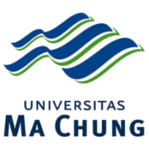PENGEMBANGAN KANVAS MODEL BISNIS SOSIAL DEMI OPTIMALISASI KINERJA USAHA BERBASIS SOSIAL
Abstract
The role of MSMEs for Indonesia is very large for economic growth. In fact, the number can reach 99% of all business units in Indonesia. Because of this important role, MSMEs need special attention in their sustainability. Agradaya is one of the social and community-based MSMEs that carries out business development based on the triple bottom line, namely People, Planet, Profit. creating a more sustainable business and environment through partnerships with small farmers and sustainable agricultural practices. Agradaya has products that focus on health benefits with natural ingredients produced from selected local plants without artificial ingredients. This study aims to understand the description of the business model in social business. The research method was carried out with a qualitative approach, with interview techniques, observation and documentation as data collection techniques. Triangulation techniques were used as data validity. The analysis tool used was the Social Business Model Canvas. The Social Business Model Canvas is a concept of the Business Model Canvas from Osterwalder but adds two important blocks that represent the mission and impact as a form of innovation in social-based business models. This tool is suitable for use because it can provide a link between social impact and economic impact so that later it can recommend the right strategy for the company. Thus, it can increase competitiveness for social-based companies and various social practices of companies in Indonesia. Social Business Canvas Social Business Model is appropriately applied to social-based businesses so that it can map the business effectively.
References
Kim, Hyejin, Sefcik, Justine S., Bradway, Christine (2017). Characteristics of Qualitative Descriptive Studies: A Systematic Review, Res Nurs Health, 40(1), 23–42, doi:10.1002/nur.21768.
Pranatasari, F. D. (2021). Agile Marketing Sebagai Solusi Business Disruption Menuju Kebangkitan Bisnis Umkm Pasca Covid-19. Modus, 33(2), 196-211.
Qastharin, Annisa R. 2015. Business Model Canvas for Social Enterprise. The 7th Indonesia International Conference on Innovation, Entrepreneurship, and Small Business.https://www.researchgate.net/publication/323393037_Business_Model_Canvas_for_Social_Enterprise
Sirine, H., & Dewi, Y. E. P. (2022). Business Model Canvas: The Implementation Method Of Corporate Social Entrepreneurship. Jurnal Ekonomi Dan Bisnis Jagaditha, 9(2), 176-184. Https://Doi.Org/10.22225/Jj.9.2.2022.176-184
Solikhah, Miatri & Marjayanti, Dian. (2021). Social Entrepeneurship, Nila Satria Banyumas Coorperative, Canvas Perspective on Islamic Business and Economic Models. Perisai, 5(1), 25-50. https://doi.org/10.21070/perisai.v5i1.1261
Umar, A., Sasongko, A. H., Widyastuti, I. T., & Christanti, Y. (2020). Improving The Social Enterprise-Based Business Performance From The Aspect Of Social Business Model Canvas. International Journal Of Entrepreneurship, 24(1), 1-12.

This work is licensed under a Creative Commons Attribution 4.0 International License.
Makalah yang disampaikan diasumsikan tidak mengandung bahan proprietary yang tidak dilindungi oleh hak paten atau aplikasi paten; tanggung jawab untuk konten teknis dan untuk perlindungan dari bahan proprietary merupakan tanggung jawab penulis dan organisasi mereka dan bukan tanggung jawab dari Jurnal Parsimonia atau Staff Pengelolanya. Penulis utama (pertama/yang sesuai) bertanggung jawab untuk memastikan bahwa artikel tersebut telah dilihat dan disetujui oleh semua penulis lain. Hal ini merupakan tanggung jawab penulis untuk mendapatkan semua izin pelepasan hak cipta yang diperlukan untuk penggunaan setiap materi dalam naskah sebelum pengajuan.









